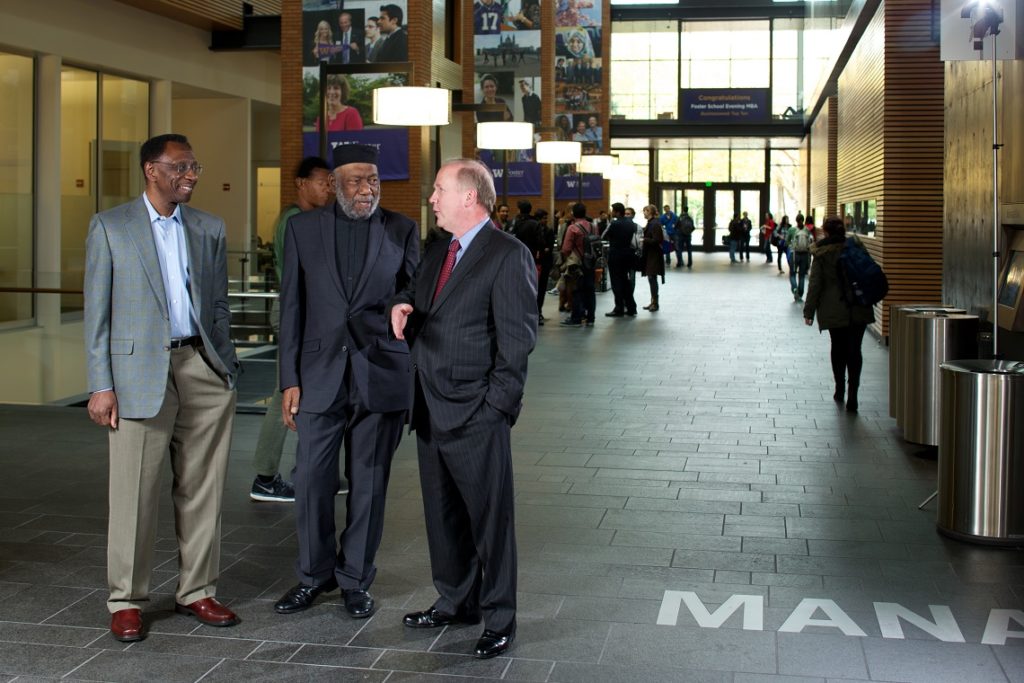First Responders
The Consulting and Business Development Center quickly pivoted to help the most imperiled small businesses around the nation recover from COVID-19
Efrem Fesaha’s small business is much more than a business. The second-generation Eritrean American opened the doors to Boon Boona Coffee in 2019, selling house-roasted coffee and beans sourced from the continent of Africa. And it quickly became the cultural heart of the area’s East African community and a flourishing hub of its diverse Renton neighborhood—an all-American mix of comic book store, clothing boutique, plant nursery, hair salon, cheese maker, yoga studio, barber shop, ale house, diner, pizza joint and Indian, Vietnamese and Mexican restaurants.
Business was so booming for Boon Boona that, as 2020 began, Fesaha was working with a team of students from the UW Foster School of Business to map a growth strategy.
And then COVID-19 hit.
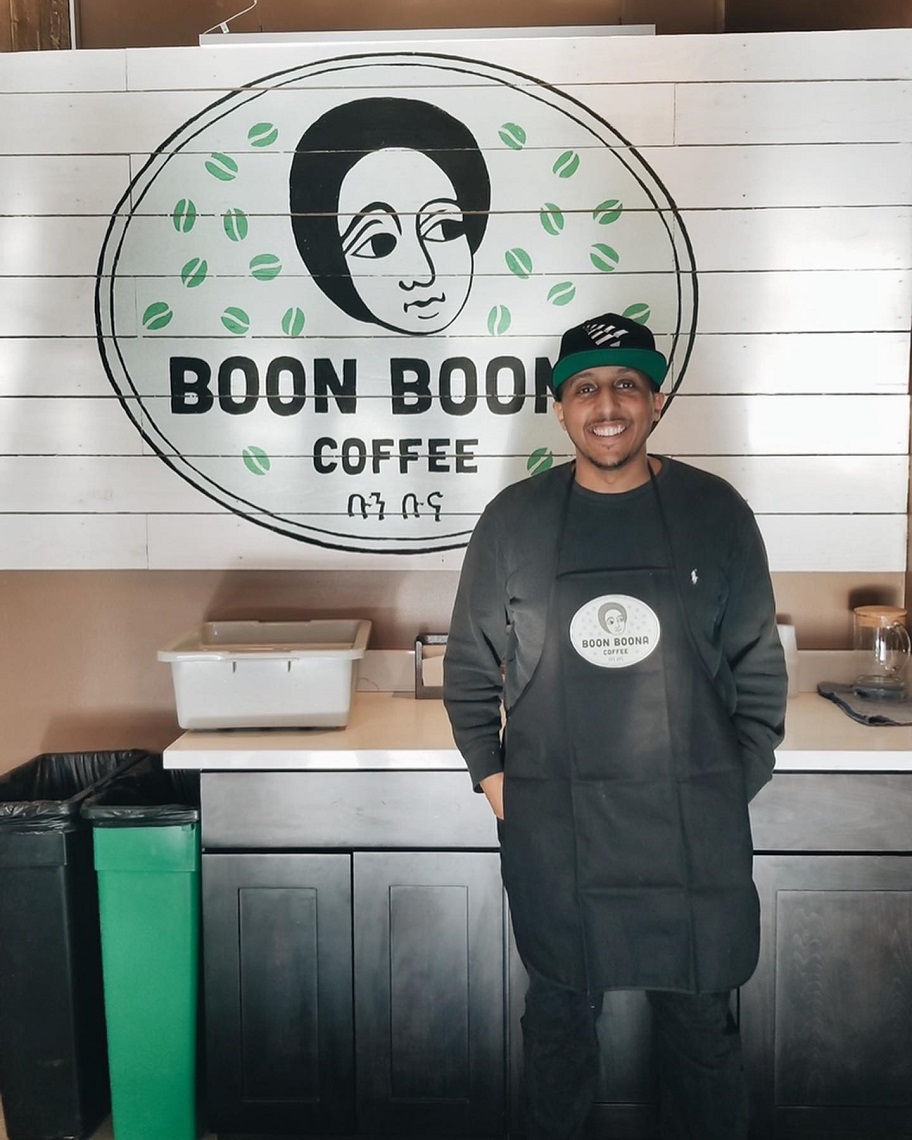
To meet Governor Inslee’s “Stay Home, Stay Healthy” order, Fesaha did everything he could think of to cushion the blow. He moved coffee and food service to the sidewalk, introduced strict sanitizing protocols, added signage to promote social distancing, pumped up Boon Boona’s social media presence, offered discounted shipping and a monthly subscription service. And he weighed applying for aid from a dizzying array of government, corporate and non-profit sources—taking precious time away from the fight to keep his enterprise alive.
Still, his revenue suffered.
Then, just a week into the statewide lockdown, Fesaha received a phone call—the first of several—from the very students who had just presented their COVID-canceled recommendations for expansion. Now they were calling to help him survive.
“What they had provided up to that point was very powerful. The research was intelligent. They had invested so much time and energy,” Fesaha says. “But it was so thoughtful that they were ready to pivot so completely, to change the tone from ‘let’s go grow’ to ‘how can we help you get through this?’ ”
Those students represented the first wave of emergency support offered by the Foster School’s Consulting and Business Development Center.
In the difficult weeks and months that followed, the Center directed all its expertise and energies to the crisis. It deployed staff, students and alumni to help area businesses weather the pandemic storm, produced online recovery workshops by Foster faculty, and engaged its proliferating national network to construct a playbook on how to survive and recover from the worst economic disaster of almost anyone’s lifetime.
A simple premise
The Consulting and Business Development Center was created 25 years ago to accelerate the growth of small businesses—specifically small businesses owned and operated by people of color, women, LGBTQ+ and those located in under-served communities.
Its impact has been remarkable. Through the work of student consulting teams and Foster faculty-led management education programs, the CBDC has helped small businesses across the state of Washington generate more than $250 million in new revenue—at an annual growth rate more than double the state average—and create or retain more than 225,000 jobs since 1995.
Decades of on-the-ground experience and academic research coalesced into a proven model for growing minority-owned businesses by addressing an historic lack of access to management education, money (loans and investment) and markets (to reach new customers and enterprise clients).
This groundbreaking model became the foundation of Ascend, a national partnership of the CBDC and JPMorgan Chase. Ascend multiplies the center’s efforts through local collaborations of university, financial, government and non-profit partners in 15 cities across the United States.
While building to the extraordinary scale and scope of a nationwide network, the CBDC has weathered plenty of storms.
“We were founded in 1995, so we’ve been through the dot-com bust, 9/11 and the Great Recession. This is not our first crisis,” says Michael Verchot (MBA 1995), the center’s founding director. “But this pandemic is orders of magnitude worse.”
Disproportionate devastation
The catastrophic human and economic toll of the COVID-19 pandemic has been exhaustively documented. Tens of thousands of small businesses have shuttered their doors, many permanently. This collapse triggered unemployment levels not seen since the Great Depression.
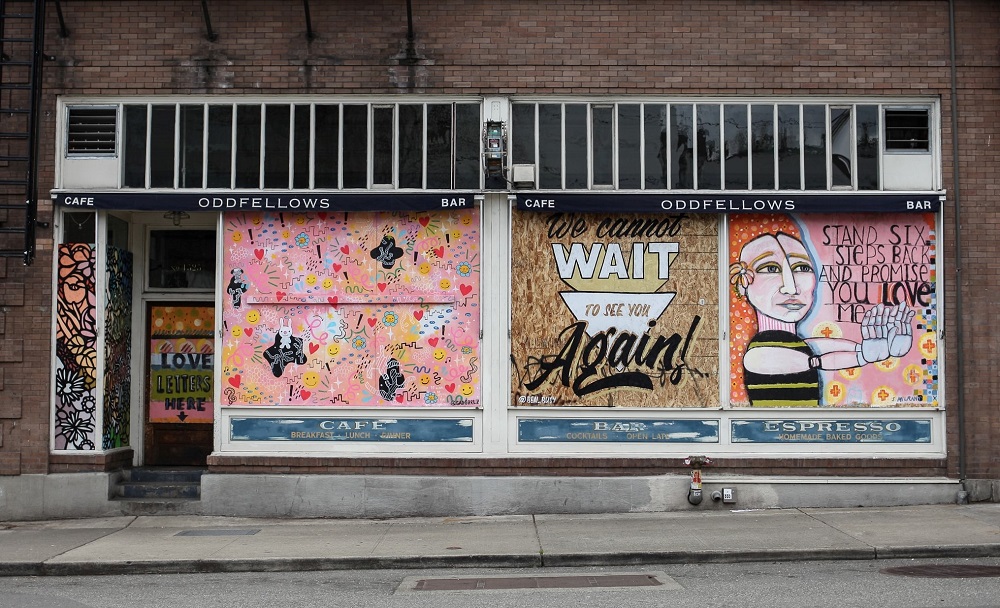
The virus—and the economic chaos it has created—has not affected all sectors and populations equally.
Nationwide, Black, Latino and Indigenous people are significantly more likely than their white neighbors to be infected by and die from the coronavirus, according to the COVID Tracking Project. Layoffs and furloughs have also fallen disproportionately on communities of color. And a study by the National Community Reinvestment Coalition found that minority owned businesses have faced more hurdles in securing pandemic aid through programs such as the U.S. Small Business Association’s $500+ billion Paycheck Protection Program.
As a result, what amounts to a hundred-year storm for most small businesses looks downright apocalyptic to those owned and operated by entrepreneurs who have historically had far less access to financial resources, education and market options.
Economic triage
The moment it became clear that the pandemic would be real, devastating and persistent, the CBDC staff mobilized its resources, pivoting from growth to survival and recovery. They began fighting the crisis on multiple fronts.
First was local: immediate support of hundreds of Washington state businesses that have relationships with the center’s programs.
“To run a business and keep it operating through this,” Verchot says, “there was just no way most small business owners could figure it all out and stay on top of it.”
But he’d need an army. And the abrupt shutdown of in-person instruction at the end of winter quarter had triggered a vast student diaspora. When the call went out to students and alumni, though, scores came forward.
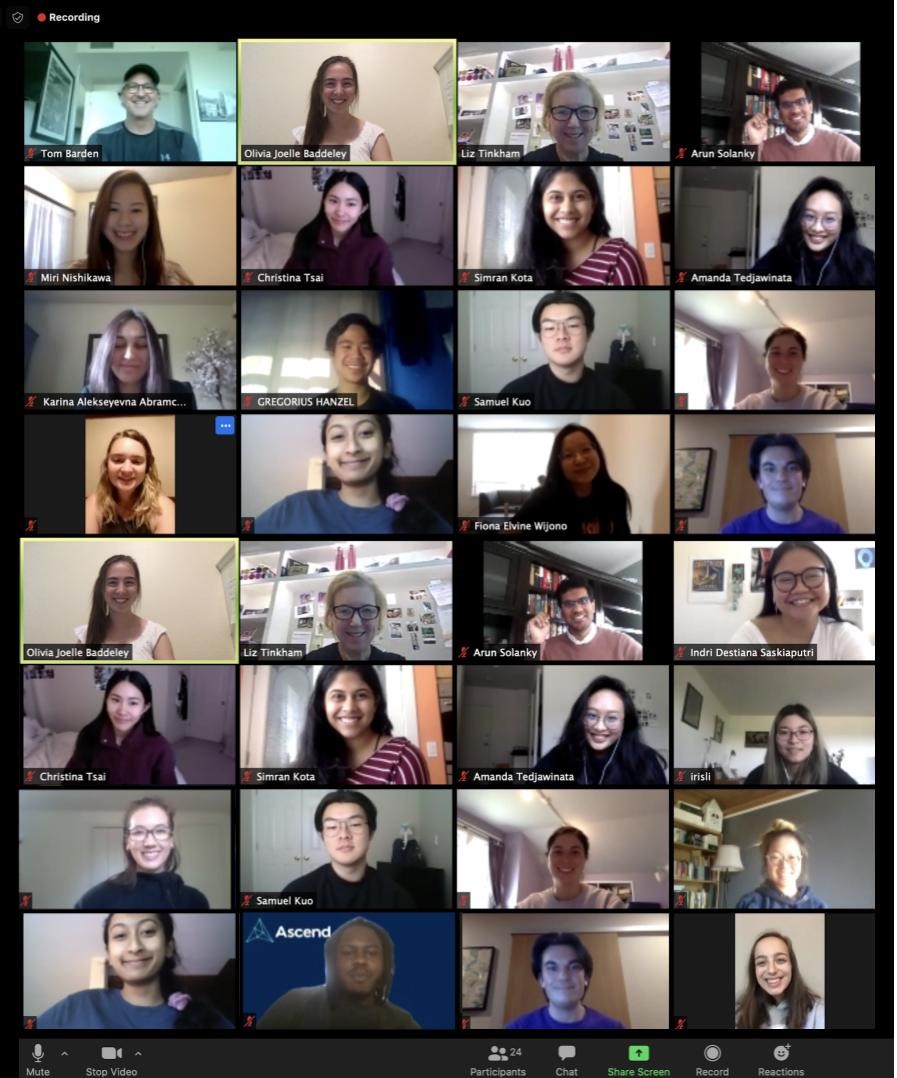
“None of the students cared about course credit,” Verchot says. “They just wanted to do something to help.”
They offered assistance in retrofitting retail spaces, designing delivery or mail-order businesses, overhauling websites and boosting social media presence, seeking new revenue streams—and navigating the firehose of loans and grants that were being offered by foundations, corporations and government agencies.
Expert assistance
The next step was a free series of “Recovery to Sustainable Growth” seminars delivered by top Foster faculty to equip small business owners with tools to face various challenges created by the pandemic.
First to volunteer was Jeff Shulman, the Marion B. Ingersoll Professor of Marketing and host of the Seattle Growth Podcast. Shulman had become intimately aware of the essential nature of community businesses while producing “On the Brink,” a documentary on efforts to save the souls of Seattle’s Central District, the city’s historic center of African American life.
“People have devoted their lives to these small businesses, which are the heart and soul of their communities—and overnight their business is just gone,” Shulman says. “So we have, if not an obligation, certainly an opportunity to help.”

A panel of award-winning educators joined the roster, producing a weekly series covering an array of topics including:
- Adapting business to the COVID-19 reality (with Shulman)
- Pivoting customer discovery strategy (with Emer Dooley, teaching professor of entrepreneurship and Charlene M. and Arthur W. Buerk Endowed Faculty Fellow, and Reggie Brown, owner of Nutress Hair and lecturer in Ascend Seattle)
- Cash and debt in good and bad times (with Thomas Gilbert, associate professor of finance)
- Negotiating with employees, vendors and other partners (with Elizabeth Umphress, professor of management and Evert McCabe Endowed Fellow)
- Inventory and supply chain management in volatile times (with Shi Chen, the Marion B. Ingersoll Professor of operations management)
- Leadership in volatile times (with Christina Fong, the William D. Bradford Endowed Professor of Management)
- Reaching and engaging customers through information technology (with Shaosong Ou, associate teaching professor of information systems).
“The fact that we can’t come together in person is really devastating in some regards,” Shulman says. “But it’s also an opportunity. We can reach so many more people with a webinar than we could ever get on campus.”
The Consulting and Business Development Center was thinking even bigger.
The playbook
Just as the gravity of the crisis was hitting home in early March, the annual meeting of Ascend’s national partnership was preparing to convene in New York City. That meeting, like all meetings, went virtual. And the agenda pivoted hard toward pandemic response.
Partners in New Orleans, Houston and New York shared their experiences of recovery after the devastations of Hurricanes Katrina and Harvey and Superstorm Sandy. But those crises were local. This one was global. And unrelenting. And unpredictable. The way forward was wholly uncharted.
“We realized there was a lot of experience, but no guidance for what small businesses should be doing to recover,” Verchot says.
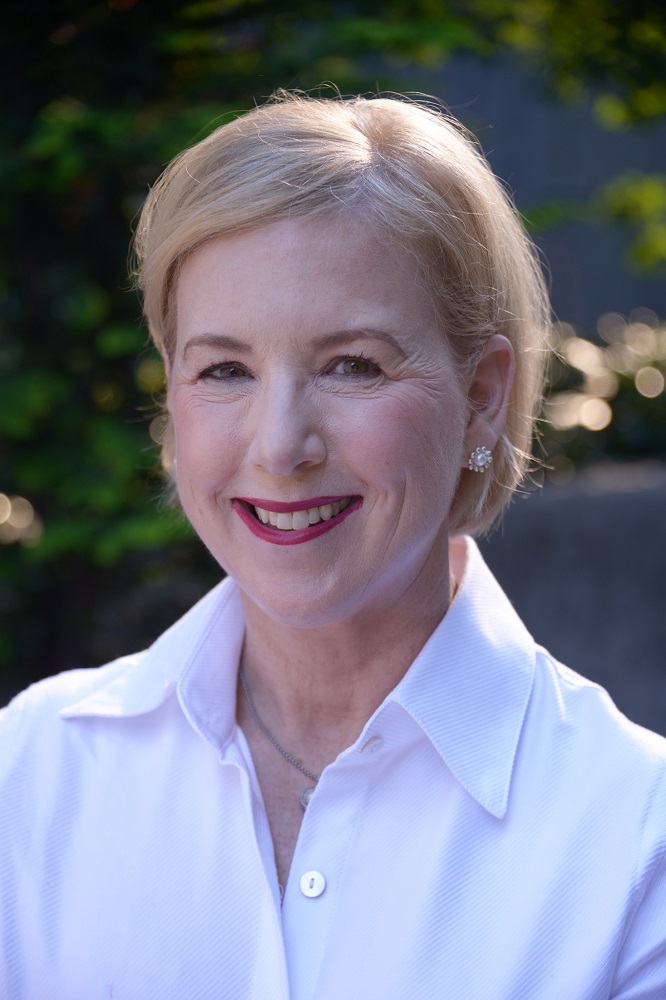
Liz Tinkham, a retired Accenture executive who teaches student consulting teams through the center’s signature MKTG 445 class, proposed a sweeping new project.
“We need to put together a playbook,” she urged Verchot, “to guide small businesses when they begin to come out of this shutdown. The long recovery is really where we can play an important role.”
Tinkham had no trouble assembling another small army of students and mentors to research and compose the playbook. “One of the hardest things about this crisis is that we were initially told that the best way to help is to do nothing, to stay home,” she says. “As human beings, they wanted to be able to do something.”
She gave them plenty to do. Split into industry and functional teams, the students pored through economic and epidemiologic reports and forecasts. They interviewed entrepreneurs, lenders and market makers across the country. They searched for every available technology and resource.
Navigating uncharted territory
Simran Kota (BA 2020), was nearing her graduation from Foster when she joined Tinkham’s team. Her extracurricular work amounted to a de facto capstone of her studies—applied in extremis. “In my consulting classes, we learned strategies and methods used to solve past problems,” Kota says. “This was going one step further to use those tools and strategies to do something that hasn’t been done before. We’re talking about helping people who have had their businesses, their livelihoods, either severely restricted, shut down or damaged beyond repair. It was very real.”

The resulting Recovery to Sustainable Growth “playbook” is actually a comprehensive website. It is designed to be user-friendly with easy-to-follow recommendations tailored to business owners in a variety of industries, among them food & beverage, construction, retail, manufacturing, healthcare and professional services.
Content covers what has changed as a result of the pandemic, a recovery road map from onset to oscillation to opening, technology tools to adapt and resources available, as well as lessons learned from past crises and ways to prepare for the next one. All this plus case studies in resilience: Jubilee Farms shifting to a CSA model; Piroshky Piroshky banding together with fellow restaurants to create a DIY delivery network; Renew Physical Therapy pivoting to telehealth; Zones leveraging crises to transform its business.
Nearly all small businesses are suffering right now. But Tinkham believes that businesses owned by underrepresented minorities and women are at a heightened risk of morbidity and mortality.
“Will some small businesses go out of business? That’s sort of the way of capitalism,” she says. “But should a disproportionate number of businesses owned by underrepresented minorities and women and immigrants go under due to lack of access? No. Here’s where we can help.”
Impact everywhere
Uncertainty persists as we trudge toward the end of a most difficult year. The end of this tragic tale has yet to be written. But Verchot believes that the quick and decisive response of the Consulting and Business Development Center is helping cushion the blow, flatten the curve.
In addition to direct support to some of the most vulnerable small businesses, it has been a catalyst, amplifying proven recovery strategies and serving as a nationwide conduit for best practices. This is the founding principle of Ascend—and the fundamental promise for rebounding from this pandemic.
“The power of entrepreneurs is that they find solutions,” Verchot says.
Efrem Fesaha and Boon Boona Coffee, still hanging tough, is a good example of this resilience. In the CBDC/Ascend network, there are legions like him to support—but also to study, model and share.
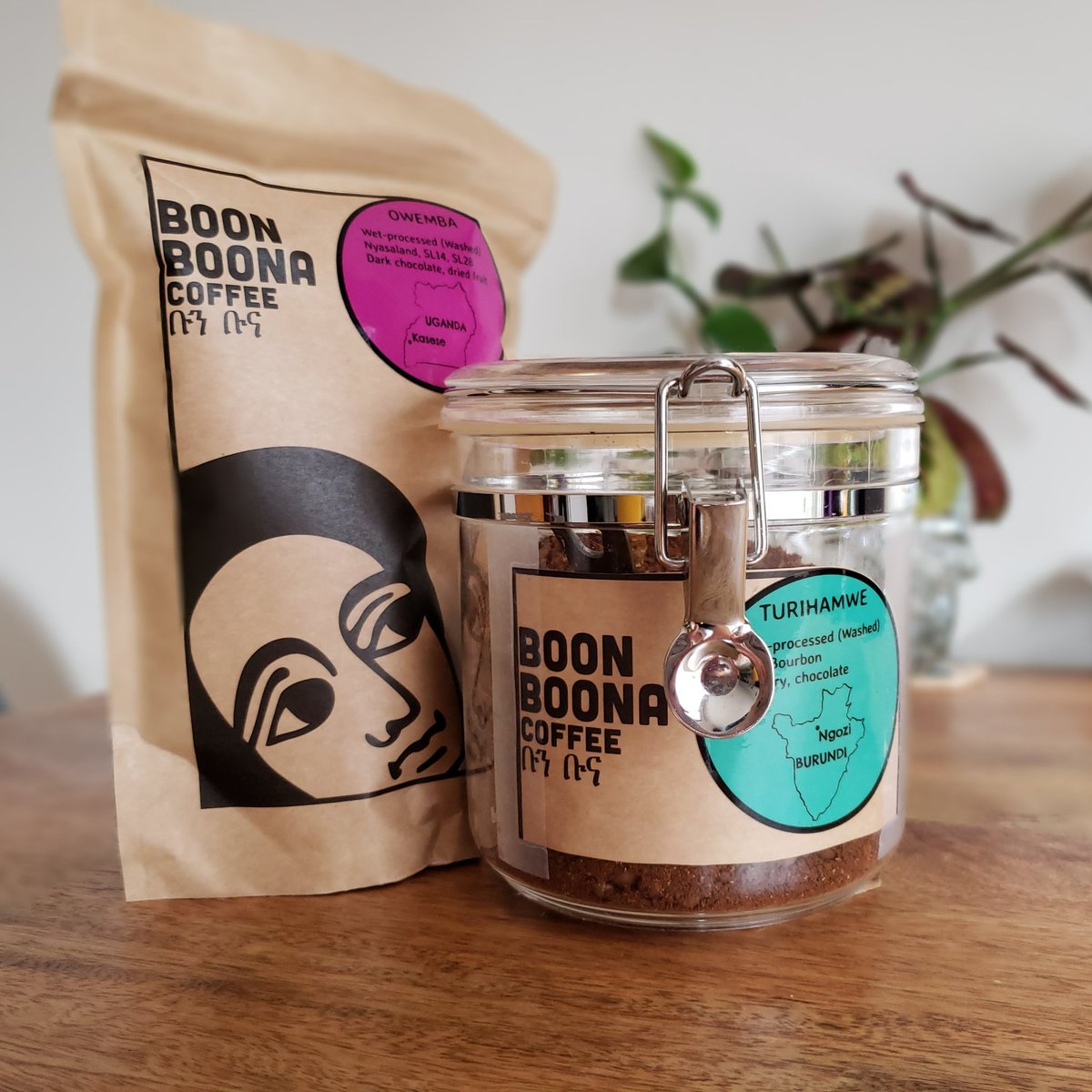
“The businesses we work with teach us as much as we teach them,” says Verchot. “They’ve always been the first to pay the price and the last to benefit. The fact that recovery will take a long time is not shocking to them. They’re used to scraping. They’re used to uphill climbs. That’s what good entrepreneurs do. They adapt. They find new revenue streams. They figure out a way to make it work.”
The same could be said of the CBDC itself, whose influence has grown exponentially around a simple core mission and despite a gauntlet of economic challenges.
“We could respond like we have to this crisis because we’ve been doing this for 25 years,” Verchot adds. “We are in touch with small businesses every day. We’re the only entity in the state with the capacity to reach so many small businesses and put together a recovery playbook on a national scale.
“That’s who we are at the Foster School. That’s who we are at the Consulting and Business Development Center. We were built for this moment.”

